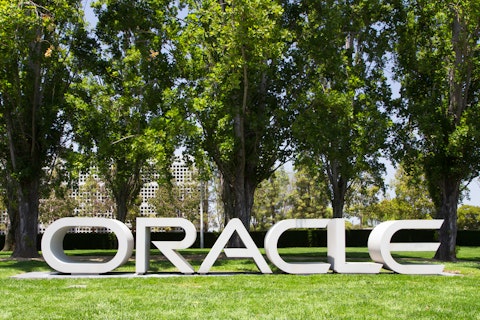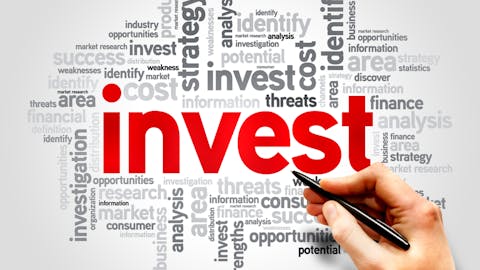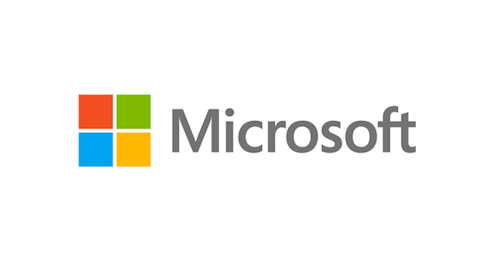Is Oracle Corporation (NYSE:ORCL) a good stock to buy now? The software giant dropped today after disappointing fiscal 2015 fourth quarter results which saw the company’s profit fall 24.36% to $2.76 billion, or $0.62 per share, down from $3.65 billion, or $0.80 per share, in the same quarter a year ago. Adjusted earnings for the quarter which ended May 31 was $3.5 billion, or $0.78 per share on revenue of $10.71 billion. According to data from Thomson Reuters, analysts expected the company to report $0.86 earnings per share on $10.92 billion in revenue. Furthermore, several brokerage firms have reduced their price target on Oracle. As an example Wedbush Securities has reaffirmed its Neutral rating on the stock while reducing its price target to $40 per share.
Oracle, which is one of the biggest software companies in the World, is blaming foreign exchange headwinds for its lackluster quarter. The firm said that its performance for the recent quarter was “significantly impacted by the strengthening of the U.S. dollar compared to foreign currencies.” If it were not for the U.S. dollar, the technology veteran’s revenues for its fourth quarter would have jumped 3%, the company said.

Ken Wolter/shutterstock.com
Nonetheless, investors should be aware of a decrease in enthusiasm about the technology firm from smart money lately. Oracle was in 59 hedge funds’ portfolio at the end of March. There were 62 hedge funds in our database with ORCL holdings at the end of the previous quarter.
First a quick word on why we track hedge fund activity. In 2014, equity hedge funds returned just 1.4%. In 2013, that figure was 11.3%, and in 2012, they returned just 4.8%. These are embarrassingly low figures compared to the S&P 500 ETF (SPY)’s 13.5% gain in 2014, 32.3% gain in 2013, and 16% gain in 2012. Does this mean that hedge fund managers are dumber than a bucket of rocks when it comes to picking stocks? The answer is definitely no. Our small-cap hedge fund strategy, which identifies the best small-cap stock picks of the best hedge fund managers returned 28.2% in 2014, 53.2% in 2013, and 33.3% in 2012, outperforming the market each year (it’s outperforming the market so far in 2015 too). What’s the reason for this discrepancy you may ask? The reason is simple: size. Hedge funds have gotten so large, they have to allocate the majority of their money into large-cap liquid stocks that are more efficiently priced. They are like mutual funds now. Consider Ray Dalio’s Bridgewater Associates, the largest in the industry with about $165 billion in AUM. It can’t allocate too much money into a small-cap stock as merely obtaining 2% exposure would really move the price. In fact, Dalio can’t even obtain 2% exposure to many small-cap stocks, even if he essentially owned the entire company, as they’re simply too small (or rather, his fund is too big). This is where we come in. Our research has shown that it is actually hedge funds’ small-cap picks that are their best performing ones and we have consistently identified the best picks of the best managers, returning 144% since the launch of our small-cap strategy compared to less than 60% for the S&P 500 (see the details).
With that in mind, we can also see some slightly negative sentiment from insiders of the company. For example, Co-Chief Executive Officer Safra Catz unloaded 3.75 million shares of the company by the end of March. Co-CEO Mark Hurd also sold 375,000 shares of the company by the start of April.
Considering all of these, we’re going to analyze the key hedge fund action surrounding Oracle Corporation (NASDAQ:ORCL).





